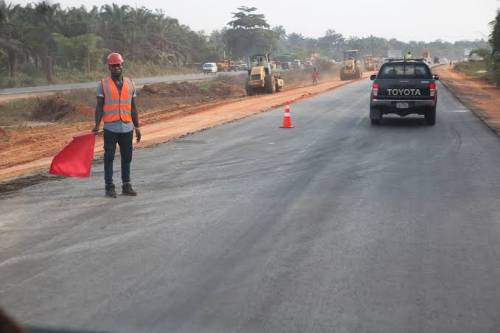
In continuation of efforts to bring private sector resources and efficiency to the development and management of federal highway corridors under its novel Highway Management and Development Initiative (HMDI), the Federal Ministry of Works and Housing has today opened the e-portal https://hdmi.worksandhousing.gov.ng for the submission of Request for Qualification (RFQ) applications.
The submission of the RFQ application for the Value-Added Concession (VAC) component of the HDMI, begins today, Monday, March 29.
The Minister of Works and Housing, Mr Babatunde Fashola SAN, had last week disclosed that the portal would ensure competitiveness and guarantee transparency in the process.
He had said that no staff of the ministry would interface with the public in the management of the HDMI conceived in 2020, from procurement to implementation.
The Value-Added Concession (VAC) component of the HDMI officially advertised today seeks to concession 12 federal highways to qualified individuals and consortia for management in the first phase.
The 12 highways which were carefully chosen to cover the six-geopolitical zones include the Benin-Asaba, Abuja-Lokoja, Kano-Katsina, Onitsha-Owerri, Shagamu-Benin, Abuja-Keffi-Akwanga and Kano-Maiduguri Expressways.
The others are Lokoja-Benin, Enugu-Port Harcourt, Ilorin-Jebba, Lagos-Ota-Abeokuta and Lagos-Badagry Expressways. They amount to a total of 1,963.24 kilometres, which is 5.6 per cent of the 35,000km Federal road network.
The e-portal opened today contains all the information the public needs, including access to relevant documents, news updates, and videos.
The portal is vital for e-procurement as it allows the management of the PPP procurement process for the VAC category, and the process of approvals and permits under the Unbundled Assets Approval (UAA). In addition, it includes a Vendors Market Place for the promotion of local businesses and vendor partnerships with prospective concessionaires.
The HDMI seeks to leverage private sector investment to improve facilities and operations on the selected 12 highways, maximize the routes’ revenue-generating potential, and ensure international best practices in developing and managing the nation’s highways.
It is also important to note that the Federal Government is currently executing over 700 different contracts, which aggregates to the rehabilitation and reconstruction of over 13,000 km of roads and bridges across all 36 states, including the Federal Capital Territory.




